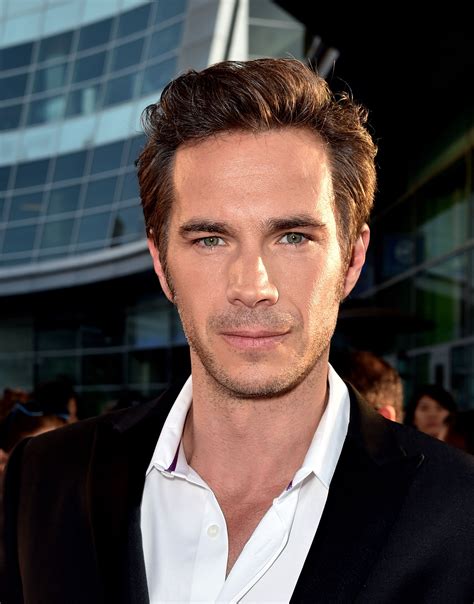A Quote by Jemele Hill
Maybe a lot of people probably didn't know this, but I spent the majority of my career in print journalism.
Related Quotes
The print magazine and print journalism industry is obviously in a great deal of trouble, and one of the things that happened when this business started to give way to the Internet and to broadcast television is that a lot of organizations started cutting specifically investigative journalism and they also started cutting fact-checkers.
I respect journalism. I was always very aware of journalism from a very broad point of view, but I'd say my baptism by fire was doing the Donald Margulies play Time Stands Still. That for me was a real education because I spent a lot of time with some incredible journalists, war reporters particularly - Bob Woodruff, Dexter Filkins - people who were very helpful in painting the picture for me and reading the accounts of people and what they experienced, a lot of PTSD.
I was in the journalism program in college and had some internships in print journalism during the summers. The plan was to go to Columbia University Graduate School of Journalism to learn broadcasting after I graduated. I was enrolled and everything, but ultimately decided that I could never afford to pay back the loan I'd have to take out.
I have a lot of people who are soap fans and they definitely know who I am, even if they call me by my character's name. I get a lot of people thinking maybe they know me from high school. My career has been a slow burn, a gradual rise, which I prefer since this is a marathon and not a sprint, so I kind of like where I am and where I'm going.
A big part of my book deals with the caliber of journalism. Our journalism in general is deplorable, and on elections in particular it's very ineffectual. There are a lot of problems, a lot of them having to do with to problems within the professional code of journalism, which defines its role as the regurgitation of what people in power say. Another big problem is that we allow people with money to basically buy what's talked about in campaigns through running TV ads.
I was going to college for broadcast journalism because I knew whatever career path I would take, I knew I wanted to be talking to as many people as possible and inspiring as many people as possible, particularly girls. When I was in college, I was like, 'I know I'm going to be on camera a lot when I'm older if I fall into my dream job.'
It's amazing to me: when people start their career, you write about maybe a couple of topics, and you find that as you grow older, a lot of those topics never resolve, because I think your job as a writer is to pose questions as you see them. I don't know if we're supposed to give answers to people, because I don't know if we have any.

































